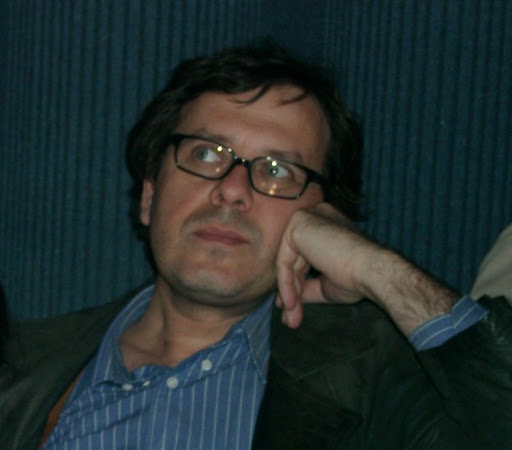Ignoring Geithner's lapse may seem a small price to pay. But cutting corners is dangerous.
In the days leading up to Barack Obama's inauguration, it really has felt like the dawn of a new era in the United States. While the latest scandals—both political (Rod Blagojevich) and financial (Bernard Madoff)—continue to reverberate, the country seems eager to break with a recent past characterized by corruption and self-interest. Politics, of course, involves compromise—and by sticking with Timothy Geithner as treasury secretary, Obama has signaled his willingness to overlook an earlier lapse in judgment by his nominee in order to get the most competent person for the job. Ignoring $34,000 in missing tax payments may seem a small price to pay for rescuing the financial system. But the country needs a cultural overhaul, and to bring it about Obama must set the right tone and example from the start.
That's because corruption tends to be an all-or-nothing affair. If you look at corruption levels around the world, you'll notice that relatively few countries are halfway corrupt. One is generally part of a bribe-paying culture or one isn't. To understand why, imagine the difficulty of paying bribes in an otherwise law-abiding nation. Odds are it won't be long before you try to shake down the wrong person and find yourself in prison or a social outcast. Where corruption is the norm, the logic flips—you may well get in trouble if you refuse to play along. Moreover, a culture of corruption can throw one's own moral compass off course. "Everyone is doing it" has served as an effective rationalization for everything from accounting sleight-of-hand to options backdating. When everyone else is cheating the system, it's all too easy to go along.
This kind of social "tipping" is called an equilibrium phenomenon: communities that are otherwise similar can end up with very different outcomes (either corrupt or uncorrupt) just by tipping in one direction or the other. Once the tipping starts, it feeds off its own momentum.
Changing an equilibrium of corruption—or of anything else—is extremely difficult because it's so costly to be the odd person out. As a result, everyone has to make the switch all at once. Imagine what would happen if a country tried to switch from driving on the right to driving on the left through gradual change. Mismatched expectations about the rules of the road would quickly lead to chaos, fender benders and even a reversion to the old "equilibrium" by the few early left-siders.
What all this means is that change requires a clean and visible break with the past, not incremental efforts. Most people, even those living under the most corrupt of regimes, would like to switch to the corruption-free equilibrium. But given their circumstances, they go along with whatever those around them are doing. Convince them that society is going to tip against corruption and they'll happily go along with that as well.
The change may be difficult, but not impossible. Perhaps the new administration can take inspiration from the transformation of Bogotá in the early 1990s. At the time, the city was the murder capital of the world and still reeling from the legacy of Pablo Escobar and the drug wars of the previous decade. In 1994, Bogotános elected Antanas Mockus, a former philosophy professor, to bring order to this landscape of urban chaos.
Once in office, Mayor Mockus quickly sprang into action, stationing mimes at the city's busiest intersections. Yes, mimes. His vision for taming the law-breaking drug lords of Colombia included the hiring of a group of theater students wearing white face paint and tights to help to enforce traffic rules. This quickly became participatory street theater, as the mimes gave out "thumbs down" cards to civilians that they could flash at rule breakers. In a matter of months, the fraction of pedestrians obeying traffic signals reportedly jumped from 26 percent to 75 percent. Indeed, the program proved so popular and effective that Mockus hired 400 more mimes to extend the long arm of mimicry to the rest of the city. The mayor's genius was in recognizing that writing harsher laws or hiring more gun-toting policemen would be futile when confronted with a law-breaking culture. Instead he enabled Bogotá's citizens to make change themselves.
Bogotá today remains a city transformed and has proved how short-term efforts at cultural change can yield long-lasting impacts. It's a lesson well worth keeping in mind in coming weeks, when U.S. leaders have the opportunity to set a public example for the nation. Of course, America is not nearly as rotten as Bogotá was—it's afflicted with a culture of self-interest, not complete lawlessness. But many of its current problems—from Wall Street and Motor City executives looking for handouts to irresponsible lending in the subprime market to self-serving politicians—have their roots in an ethos of doing for oneself rather than for country. If those in the White House continue to cut corners, why should everyday citizens believe there's anything wrong with lining their own pockets? It's very possible that Geithner's tax blunder was an honest mistake. But in trying to shift a what's-in-it-for-me culture to one of civic-mindedness, beliefs and expectations matter just as much as reality, and Obama must take a stronger stand on ethical lapses in the future.
Fisman is co-author of “Economic Gangsters: Violence, Corruption and the Poverty of Nations” and the Lambert Family Professor of Social Enterprise at Columbia Business School.
© 2009

Keine Kommentare:
Kommentar veröffentlichen